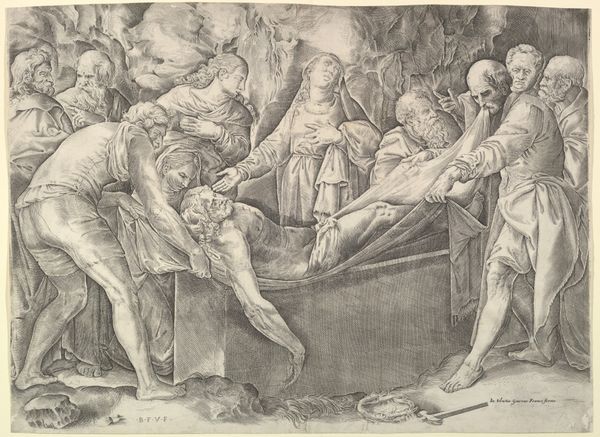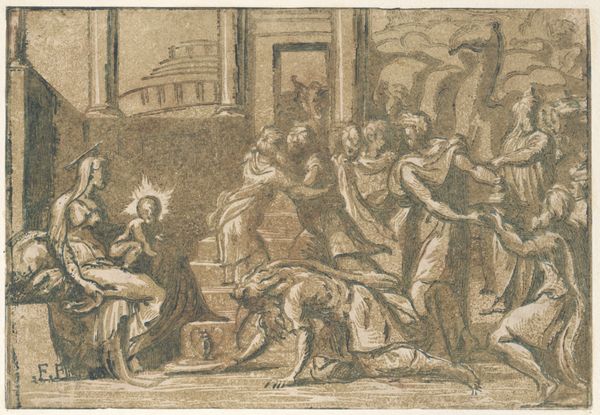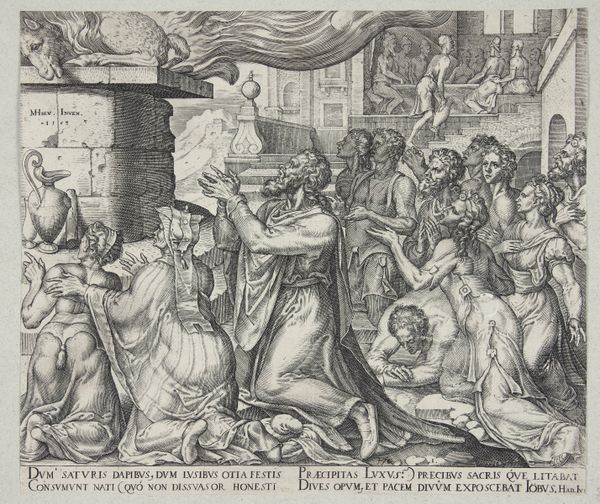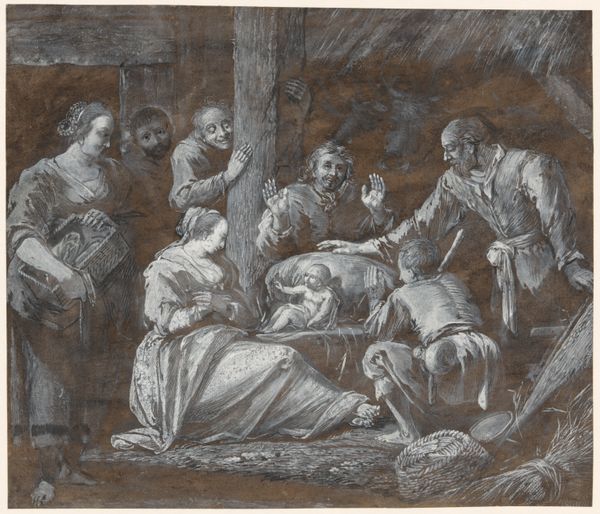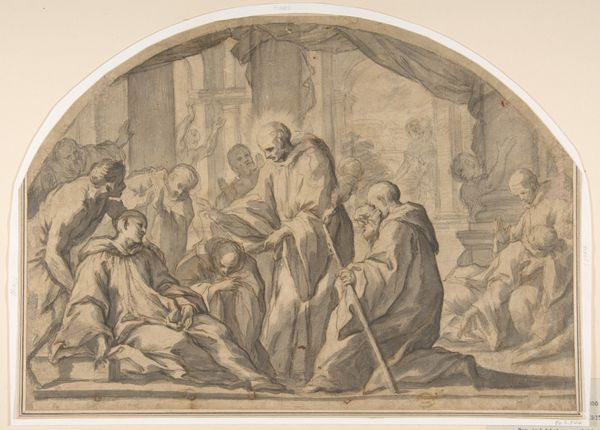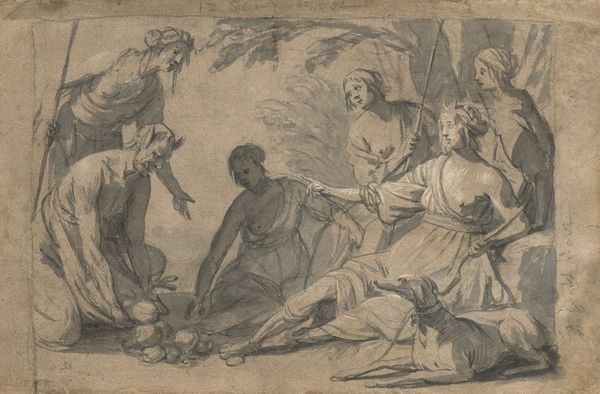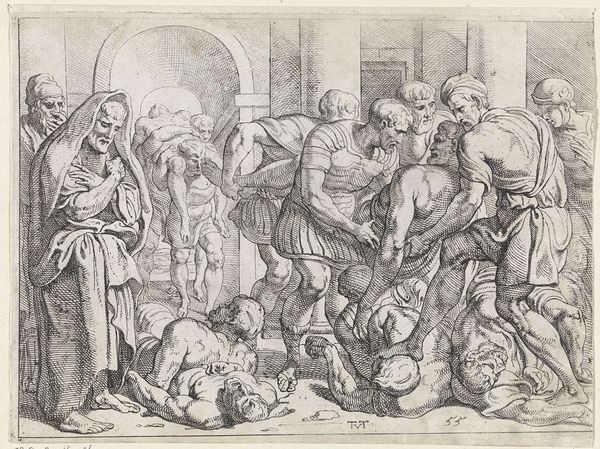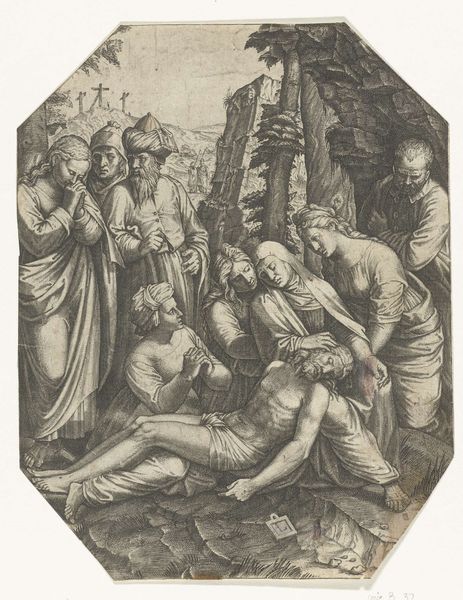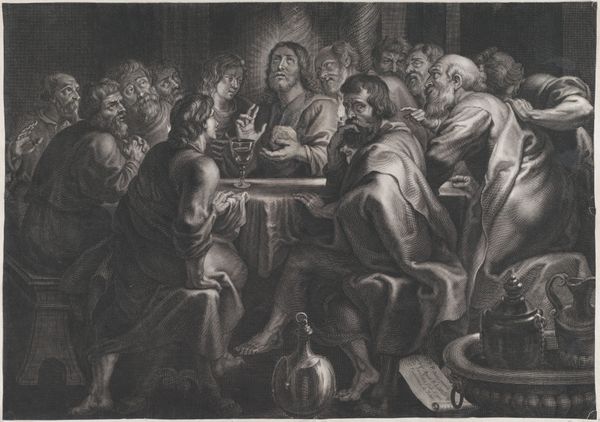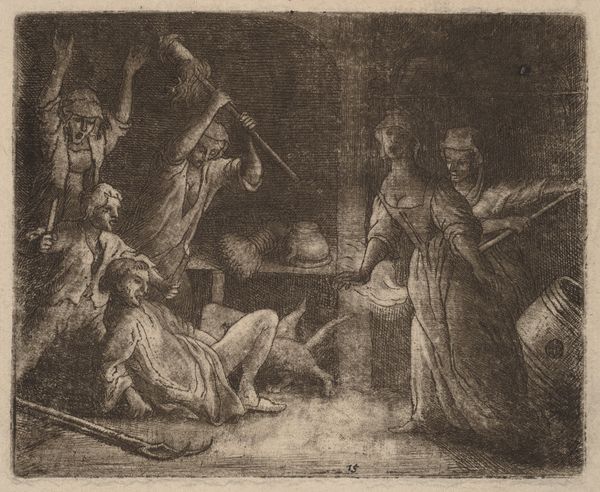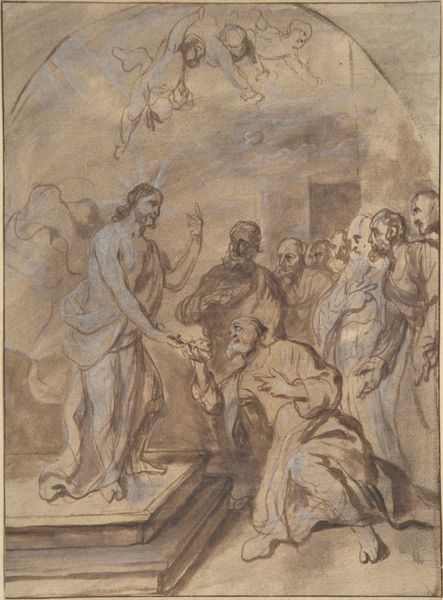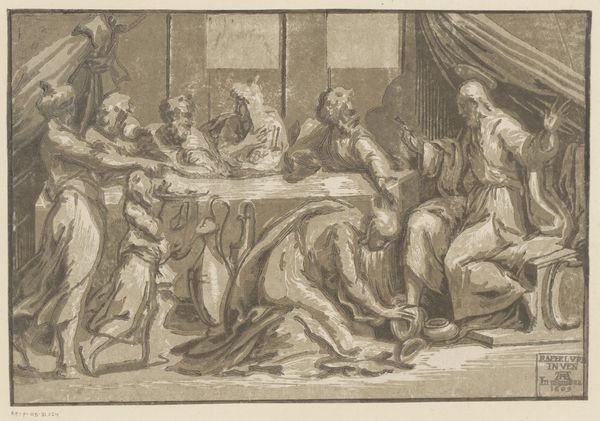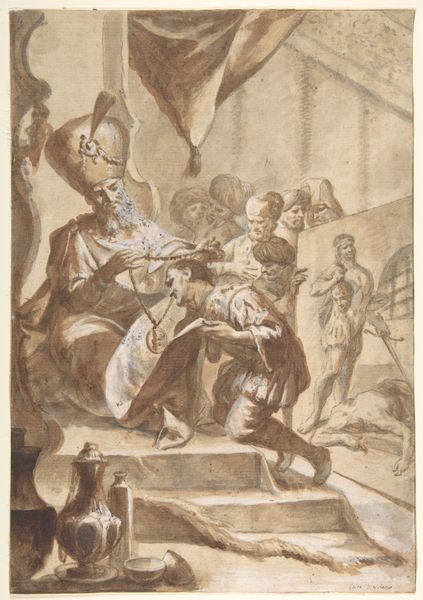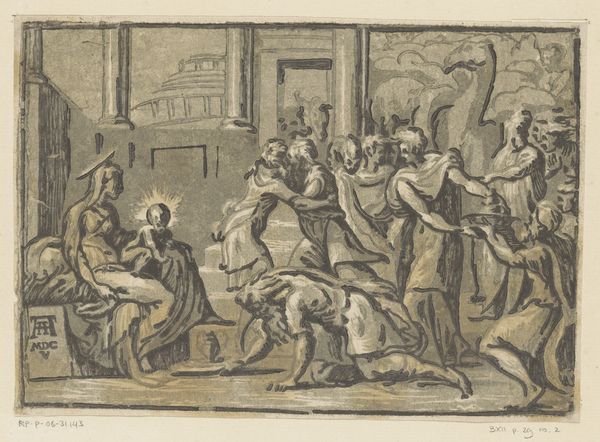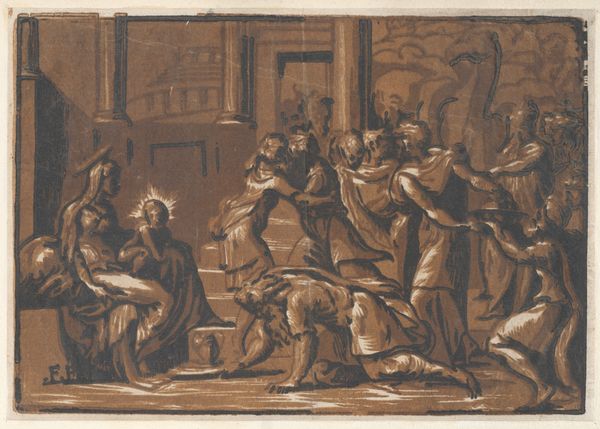
painting, oil-paint
#
narrative-art
#
painting
#
oil-paint
#
mannerism
#
figuration
#
mythology
#
human
#
history-painting
#
italian-renaissance
Copyright: Public domain
Editor: So this painting, "The Descent of Manna" by Palma il Giovane, created around 1575 using oil, depicts a scene of apparent chaos and desperation. There's so much happening, figures scrambling and reaching… It almost feels overwhelming. What symbols are most prominent for you in understanding its narrative? Curator: For me, this painting becomes a stage for understanding cultural memory. Manna itself, in this context, goes beyond simply being "food." What does manna represent in your understanding, editor? Editor: I suppose it signifies divine provision, sustenance in a time of need. Curator: Exactly! It's a powerful symbol of faith, and reliance on something greater than oneself. Palma uses gestures and bodily expressions, which can be seen as emblems. For example, the upturned faces looking skyward signal not just hunger, but hope. Notice the contrasting figures gathering or fighting over the manna. It is about community as well as struggle and selfishness. What does this contrast tell you? Editor: It hints at the tensions within the community, the challenges of scarcity, but also the inherent human capacity for both good and bad even in desperate circumstances. Curator: Precisely. And considering the Mannerist style, everything feels amplified—the emotions, the poses, the colors… Mannerism loves such intensity. And in Palma's hands, this descent becomes a profound meditation on the human condition and spiritual dependence. Do you see it as more positive or more critical now? Editor: It’s much more nuanced than I initially thought. It holds both hope and a harsh view of humanity simultaneously. Thanks! Curator: A visual representation that explores and continues to hold human faith for centuries!
Comments
No comments
Be the first to comment and join the conversation on the ultimate creative platform.
